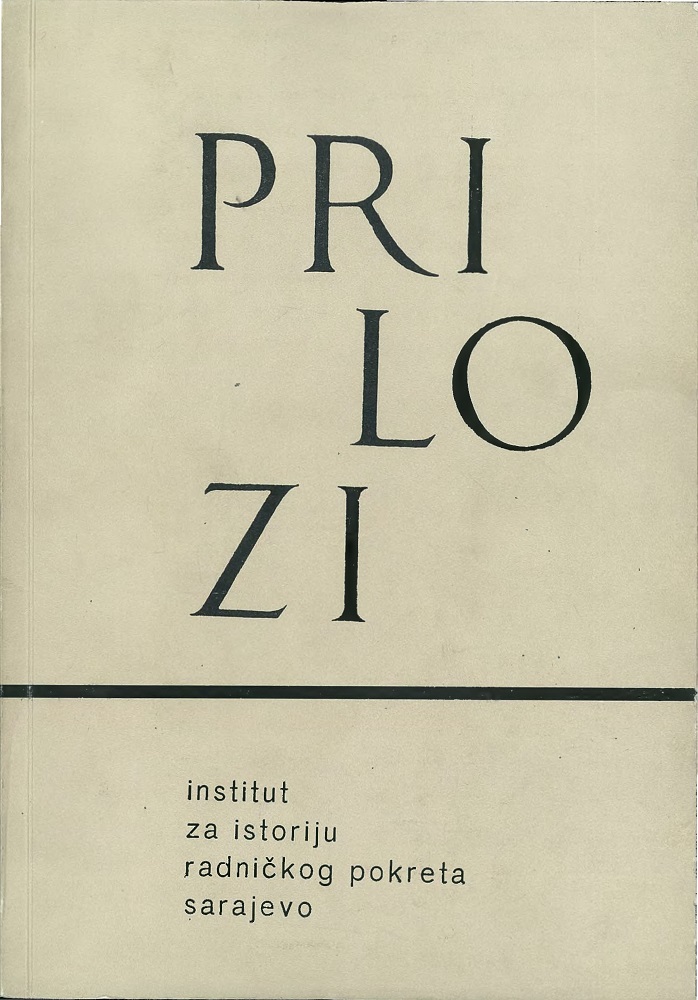RAZLOZI I PRAVCI POJAČANOG ANGAŽOVANJA NJEMAČKOG OKUPATORA U NDH 1942/1943. GODINE (S POSEBNIM OSVRTOM NA ZNAČAJ PRIVREDNOG POTENCIJALA BIH)
REASONS AND DIRECTIONS OF INTENSIFIED ENGAGEMENT OF GERMAN OCCUPATOR IN NDH IN 1942/1943 (WITH A SPECIAL REVIEW ON THE ECONOMY POTENTIAL OF BOSNIA AND HERZEGOVINA)
Author(s): Rafael BrčićSubject(s): Energy and Environmental Studies, Economic history, Military history, Political history, WW II and following years (1940 - 1949)
Published by: Institut za istoriju
Keywords: Bosnia and Herzegovina; Economic history; German occupator; 1942/1943;
Summary/Abstract: The Ustasha Independent State of Croatia (NDH), which was created by the will of the invadors and from the very first day was organized so as to serve by its armed forces the interests of the Axis Powers, soon found itself in a situation forcing leaders to lean more on the German invadors, since they offered her greater »-independence«. Due to the relationships of the invador forces which aimed at a new partition of the world and creation of a new »Europen Order«, owing to the situation on the eastern front, Hitler was prepared to sacrifice the interests of NDH to his Italian partner, but not his own interests. (Hitler’s instruction No 39a of December 16, 1941 was not carried out simply because OKW persuaded Hitler that »to relinquish the whole of NDH to the Italian 2 Army would mean to sacrifice our own interests«.) Until the end of 1942, dissatisfied with the new instruction, the Italians found »reasons« not to take part in the actions against the peoples’ liberating movement to the extent to which they were expected to do by the Germans. There were cases in which Italians relinquished some places in Bosnia and Herzegovina before the ustasha—domobran forces came to take over, which to a certain extant made it easier for the Peoples’ Liberating Army of Yugoslavia (NOVJ) to liberate a vast region of about 50.000 km2. In practice it was a hard blow to the German invador, since exploitation of raw materials like boxite, coal, iron ore and wood, were in this way rendered impossible.
Journal: Prilozi
- Issue Year: 1968
- Issue No: 4
- Page Range: 287-296
- Page Count: 10
- Language: Bosnian

